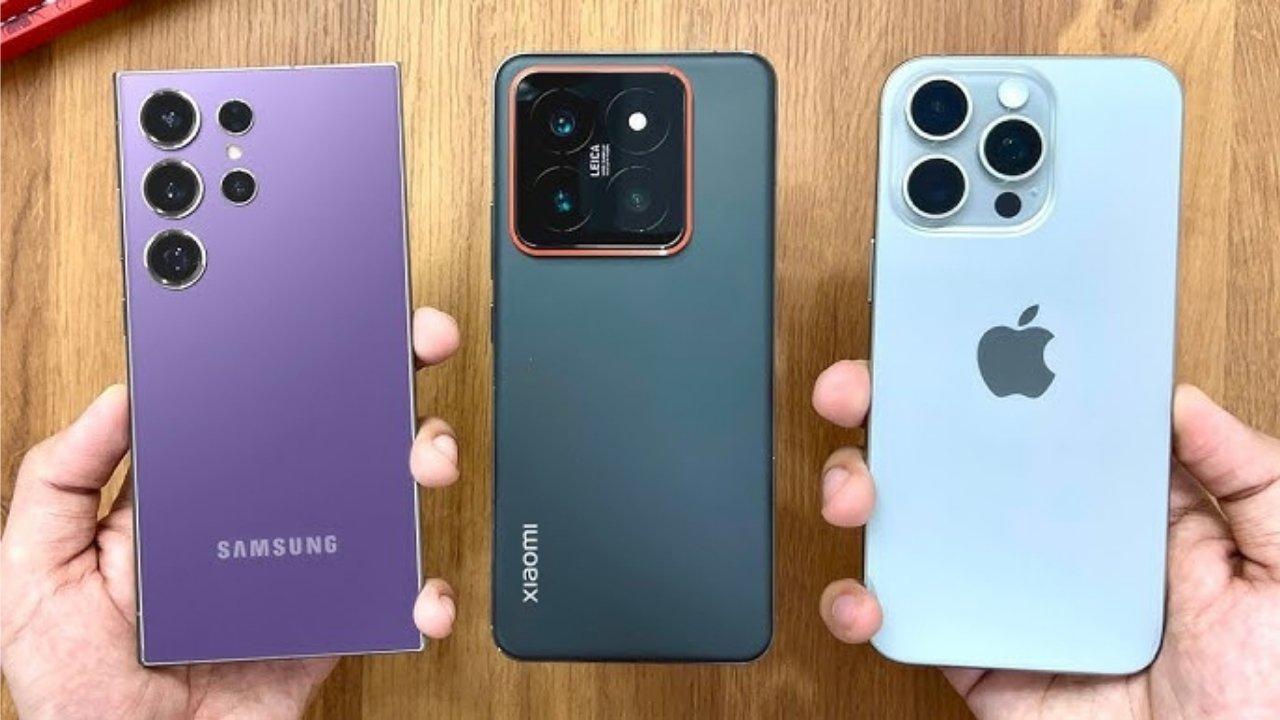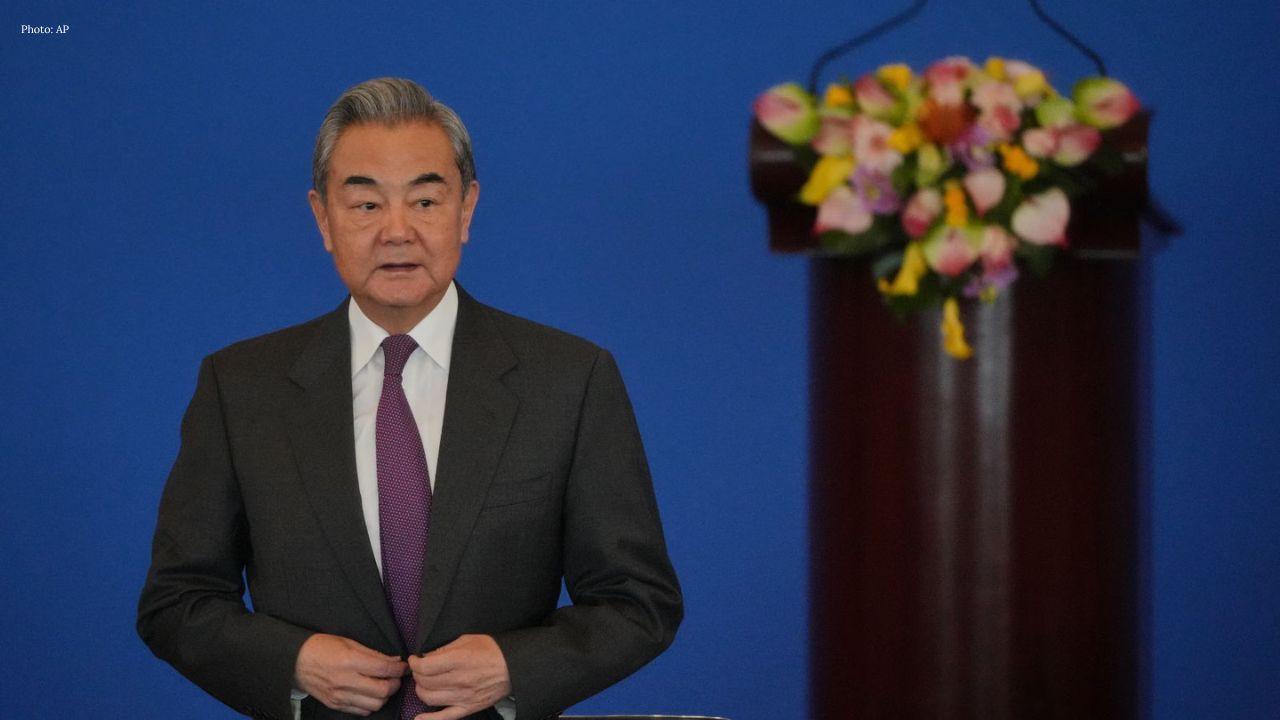You have not yet added any article to your bookmarks!

Join 10k+ people to get notified about new posts, news and tips.
Do not worry we don't spam!

Post by : Anis Farhan
The global smartphone market has become increasingly competitive, with major players constantly innovating to capture market share. Apple, Samsung, and Xiaomi are the most influential companies shaping this market. As of mid-2025, Apple remains the leader with a stronghold in premium devices, while Samsung has shown resilience with steady growth, and Xiaomi continues to expand rapidly, especially in emerging markets.
Market analysts estimate Apple holds approximately 26% of global market share, Samsung around 21%, and Xiaomi close to 11%. These figures indicate a competitive yet shifting landscape, where technological advancements, pricing strategies, and consumer loyalty play pivotal roles. The stage is set for a fierce contest as Samsung prepares to introduce its Galaxy S26 series, challenging the dominance of its rivals.
Samsung’s Galaxy S26 series represents the company’s most ambitious launch to date. With high expectations globally, the S26 aims to redefine what users can expect from premium smartphones.
The S26 series introduces an Advanced Professional Video (APV) codec capable of lossless 4:4:4 12-bit HDR video recording. This feature positions Samsung to compete directly with Apple’s ProRes video capabilities, appealing to professional content creators and mobile filmmakers. The S26 Ultra is expected to feature a 200MP camera sensor, providing unparalleled image clarity and detail.
At the heart of the S26 Ultra is Samsung’s Exynos 2600 processor. This in-house chipset signals Samsung’s commitment to independence from external suppliers while delivering high performance. Early benchmarks suggest improved energy efficiency, faster processing speeds, and enhanced AI capabilities compared to previous models.
Samsung plans to expand its Galaxy AI ecosystem across 400 million devices by the end of 2025. This integration allows seamless personalization, predictive suggestions, and enhanced device interconnectivity. AI will power camera functions, system optimization, and even app recommendations, providing users with an intelligent and adaptive experience.
The Galaxy S26 series is rumored to feature a refined design with thinner bezels, a higher screen-to-body ratio, and brighter, more color-accurate displays. Samsung continues to focus on delivering premium aesthetics and durability with its latest glass and metal materials, maintaining its reputation for high-end design.
Apple remains the undisputed leader in the premium segment of smartphones. Its iPhone 17 series showcases advanced display technology, a highly optimized A17 Bionic processor, and a seamless iOS ecosystem that strengthens user retention.
Apple’s advantage lies in its tightly integrated ecosystem, which includes iPhones, iPads, MacBooks, and wearable devices. The seamless communication between these products enhances user experience and maintains brand loyalty. Regular software updates and proprietary apps further reinforce Apple’s market stronghold.
The iPhone 17 series continues to lead in camera and computational photography capabilities. Apple’s ProRAW and advanced AI algorithms provide superior image processing, low-light performance, and high-quality video recording. These innovations ensure that Apple remains attractive to professional photographers and content creators.
Despite its advantages, Apple faces challenges from Samsung and Xiaomi. Samsung’s Galaxy S26 promises advanced video and AI features, while Xiaomi offers high-performance devices at more accessible prices. Price sensitivity and technological parity in certain features could potentially impact Apple’s market share in regions where consumers prioritize value over brand prestige.
Xiaomi has carved a niche in the global smartphone market by offering feature-rich devices at competitive prices. Its Xiaomi 17 series incorporates the latest Snapdragon 8 Gen 5 processor and high-quality cameras, delivering premium experiences at mid-range prices.
Xiaomi has leveraged cost-effective manufacturing and marketing strategies to expand in emerging markets, particularly in Southeast Asia, Latin America, and parts of Europe. Competitive pricing, combined with flagship-level features, has allowed Xiaomi to capture significant market share among budget-conscious consumers.
Xiaomi continues to push the envelope with AI-powered cameras, extended battery life, fast charging capabilities, and MIUI software enhancements. By integrating technologies that rival premium devices, Xiaomi attracts consumers who seek value without compromising on performance.
While Xiaomi excels in emerging markets, its penetration in developed countries remains limited due to brand perception and consumer loyalty towards Apple and Samsung. Strategic partnerships, localized marketing, and further innovation could enhance Xiaomi’s global standing in the coming years.
The competition between Samsung, Apple, and Xiaomi can be evaluated based on performance, camera capabilities, AI integration, ecosystem, and pricing:
| Feature | Samsung Galaxy S26 | Apple iPhone 17 | Xiaomi 17 Series |
|---|---|---|---|
| Processor | Exynos 2600 | A17 Bionic | Snapdragon 8 Gen 5 |
| Camera Capabilities | APV Codec, 200MP | ProRAW, 48MP | AI-Enhanced Camera |
| AI Integration | Galaxy AI | Core ML | MI AI |
| Ecosystem | Android, One UI | iOS | MIUI |
| Price Range | $799+ | $999+ | $499+ |
This comparison highlights the strategic differences between the three companies: Samsung focuses on AI and video innovation, Apple emphasizes ecosystem and premium user experience, and Xiaomi targets value-conscious consumers with advanced features at lower prices.
The smartphone industry is evolving rapidly, with AI, 5G, and sustainable technology playing major roles in future growth.
AI integration is set to define the next generation of smartphones. Samsung’s Galaxy AI, Apple’s Core ML, and Xiaomi’s MI AI offer personalized experiences, predictive functionalities, and smart system optimizations, enhancing user engagement across all platforms.
5G networks are expanding globally, enabling faster data speeds and improved connectivity. Samsung, Apple, and Xiaomi are all producing 5G-enabled devices, which will influence consumer choice, particularly in high-density urban regions where connectivity is a priority.
Consumers are increasingly conscious of environmental impacts. All three companies are adopting eco-friendly practices such as recyclable packaging, energy-efficient components, and sustainable supply chains, which may influence brand preference among environmentally conscious users.
Consumer loyalty and brand perception will play crucial roles in market dynamics. While Apple enjoys high loyalty in developed markets, Samsung’s innovations and Xiaomi’s affordability could sway consumer decisions in emerging markets. Flexibility, performance, and ecosystem integration will determine long-term market leadership.
The dominance of these brands varies across regions:
North America and Europe: Apple maintains leadership due to brand loyalty, premium ecosystem, and strong service support.
Asia-Pacific: Samsung has a significant presence, particularly in South Korea, India, and Southeast Asia, where device features and brand heritage matter.
Emerging Markets: Xiaomi captures the mid-range segment with affordable, high-performance devices, expanding rapidly in countries like India, Indonesia, and Brazil.
These regional nuances suggest that global leadership will depend on a company’s ability to adapt to local consumer needs while maintaining technological superiority.
Samsung, Apple, and Xiaomi are likely to implement strategic measures to strengthen their market positions:
Samsung: Further expansion of AI, advanced camera technologies, and premium device features.
Apple: Strengthening ecosystem integration, introducing innovative features, and maintaining premium branding.
Xiaomi: Expanding into premium segments, increasing brand recognition, and leveraging cost advantages in emerging markets.
The next 12–18 months will be critical in determining how these strategies translate into market share and influence global consumer preferences.
The launch of the Samsung Galaxy S26 series marks a significant milestone in the smartphone industry. While Apple continues to dominate the premium segment with its ecosystem and innovation, Samsung’s cutting-edge features, AI integration, and high-end cameras make it a strong contender. Meanwhile, Xiaomi’s strategy of delivering high-quality devices at competitive prices allows it to capture growing market segments in emerging regions.
The global smartphone market is evolving toward greater competition, technological advancement, and consumer choice. The ultimate leader in 2026 will be determined by innovation, pricing, brand perception, and the ability to cater to both premium and budget-conscious consumers. Samsung, Apple, and Xiaomi each have unique strengths, and the coming months will reveal which company can best leverage its capabilities to dominate the worldwide market.
This article is for informational purposes only. Market dynamics, product features, and company strategies are subject to change. Readers should consult official announcements










China to Raise Defence Budget by 7% in 2026 Amid Global Tensions
Beijing proposes a 1.91 trillion yuan defence budget for 2026, marking 11th straight year of single-

China Ousts Three Retired Generals from Top Political Advisory Body
CPPCC ousts retired PLA generals ahead of annual Two Sessions as broader anti‑corruption military sh

Japan Jobless Rate Rises to 2.7%
Japan sees first increase in jobless rate in five months as voluntary quits rise and job openings sl

Strong 6.1-Magnitude Earthquake Shakes Indonesia’s Sumatra Island
Tremors felt across region no immediate reports of damage or casualties as authorities monitor seism

Rizwan Sajan Reaffirms Trust in UAE’s Safety and Growth
Danube Group Chairman Rizwan Sajan assures residents and expatriates of safety in UAE, highlighting

India Witnesses Chandra Grahan Blood Moon Visible in Parts of World
Skywatchers observe partial eclipse in India as total ‘Blood Moon’ visible across North America Aust